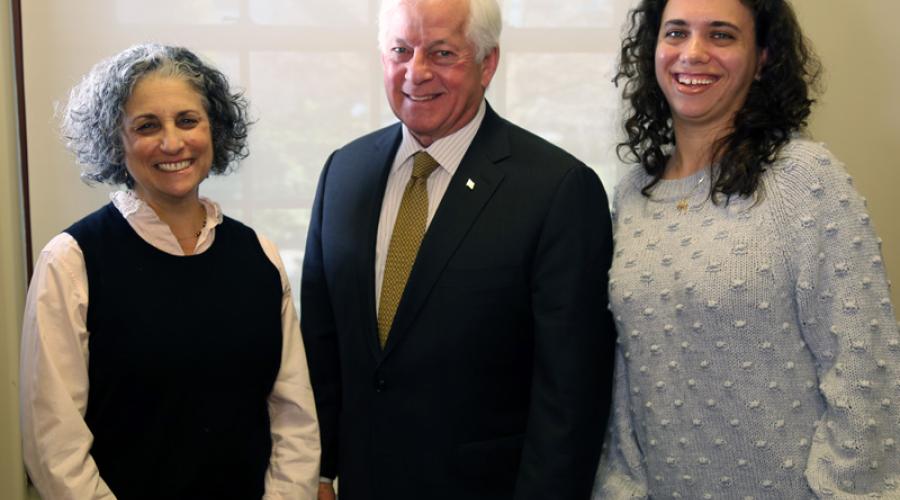
Cornell Grant Helps Support Disability Advocacy
When 2019 comes to a close, so will the Yang-Tan Institute’s Partners in Policymaking class taught for 10 years through grants from the New York State Developmental Disabilities Planning Council. However, the program will continue and support through an Engaged Opportunity Grant, awarded through Cornell’s Office of Engagement Initiatives, will fund some of the activities.
An innovative model of leadership and advocacy training for people with developmental disabilities, parents and family members, the Partners program equips people with the knowledge, tools and resources to be effective advocates for change in local, state and national platforms.
Over the past decade, more than 400 people graduated from the three-month online program, which combines online resources with live webinar instruction and culminates with each student developing an advocacy project.
Projects have ranged from the creation of a children’s book about inclusion, to having voting access expanded in one student’s local community, to bringing disability awareness to the political arena and providing future Partners program participants with tips on meeting with political representatives.
“This is critically important work,” says project director Carol Blessing. “Lives are changed because of this program.
“The end of state financial support does not end the need for quality leadership and advocacy training for New Yorkers living with disabilities.”
To address the gap, the Yang-Tan Institute will continue providing access to the online curriculum for Partners graduates.
Additionally, Blessing will use Engaged Opportunity Grant money to fund “Partners 4 Progress: Building Family and Community Capacity to Lead System Change at the Local Level,” which will bring together a select group of Partners’ graduates for a two-day train-the-trainer program in 2020.
“We are going back to grassroots advocacy by equipping leaders across the state with the resources they need to deliver advocacy training and information in local communities,” Blessing said.


